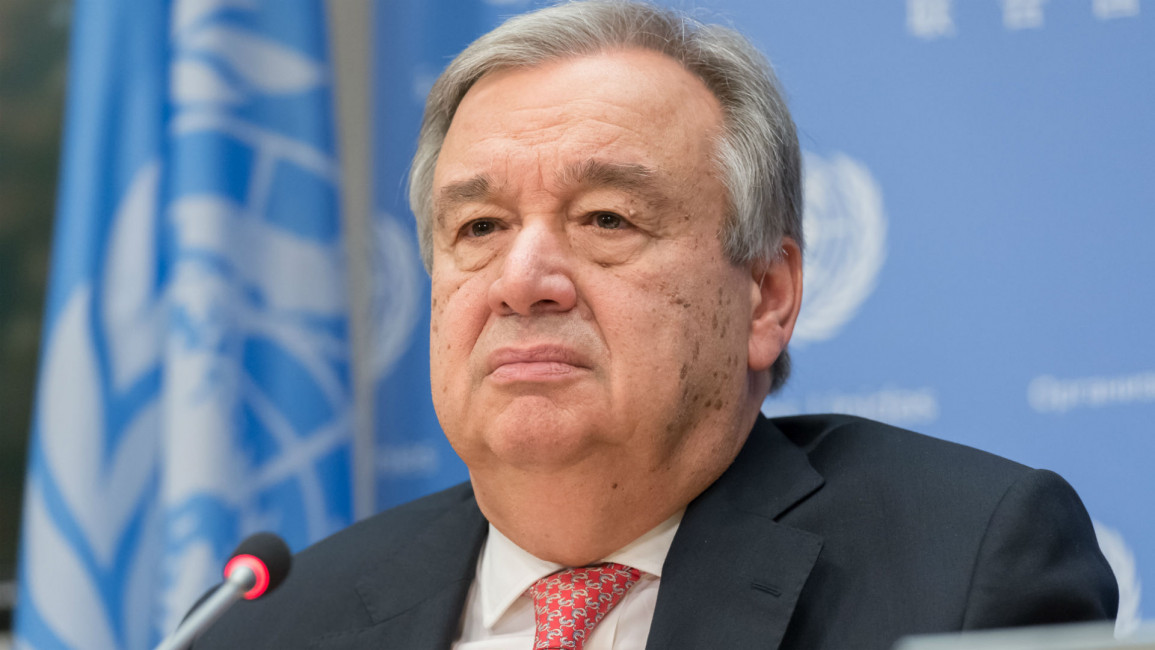UN chief urges 'nerves of steel' amid soaring Gulf tensions
Secretary-General Antonio Guterres said “I have only one strong recommendation: nerves of steel”, according to UN spokeswoman in Geneva Alessandra Vellucci.
The comments came after Iran said it was notified of an imminent overnight US attack via Oman, officials told Reuters on Friday.
The officials said US President Donald Trump’s message was relayed to Tehran by authorities in Oman, deemed to be the regional mediator for various issues.
The comments came shortly after a New York Times article revealed Trump had approved military strikes against Iran in response to the downing of a US spy drone, but called off the attacks at the last minute.
A US official said the military made preparations on Thursday night to target Iran’s radars and missile batteries.
The White House on Thursday night declined requests for information about whether Trump changed his mind.
Trump spent most of Thursday discussing Iran strategy with top national security advisers and congressional leaders. Asked earlier in the day about a US response to the attack, he said, "You'll soon find out."
Iran says that the downed drone was flying over its territorial waters but the US Department of Defence says that it was 34 kilometres away from the Iranian coast when it was downed.
Authorities in Tehran called in the Swiss ambassador, whose country has represented US interests since the severance of diplomatic relations in the aftermath of the Islamic revolution of 1979, to issue a formal protest.
Deputy foreign minister Abbas Araghchi provided the ambassador with "indisputable" evidence the drone had violated Iranian airspace, the foreign ministry said.
"Even some parts of the drone's wreckage have been retrieved from Iran"s territorial waters," Araghchi told the Swiss envoy.
Araghchi "reiterated that Iran does not seek a war and conflict in the Persian Gulf", but warned: "The Islamic Republic of Iran would not hesitate for a moment to decisively defend its territory against any aggression."
The US president had struck a combative tone in his public comments before rowing back.
"Iran made a very big mistake!" he tweeted in response to news that Iran had shot down the Global Hawk surveillance aircraft.
"This country will not stand for it, that I can tell you," he said later at the White House.
But as the pre-dawn incident whipped up fears of open conflict between the United States and its declared foe Iran - sending crude oil prices soaring - Trump moved swiftly to dial back tensions.
"I find it hard to believe it was intentional, if you want to know the truth," Trump said. "I think that it could have been somebody who was loose and stupid that did it."
The president's mixed message left the world unsure what Washington's next move would be.
Follow us on Twitter: @The_NewArab



